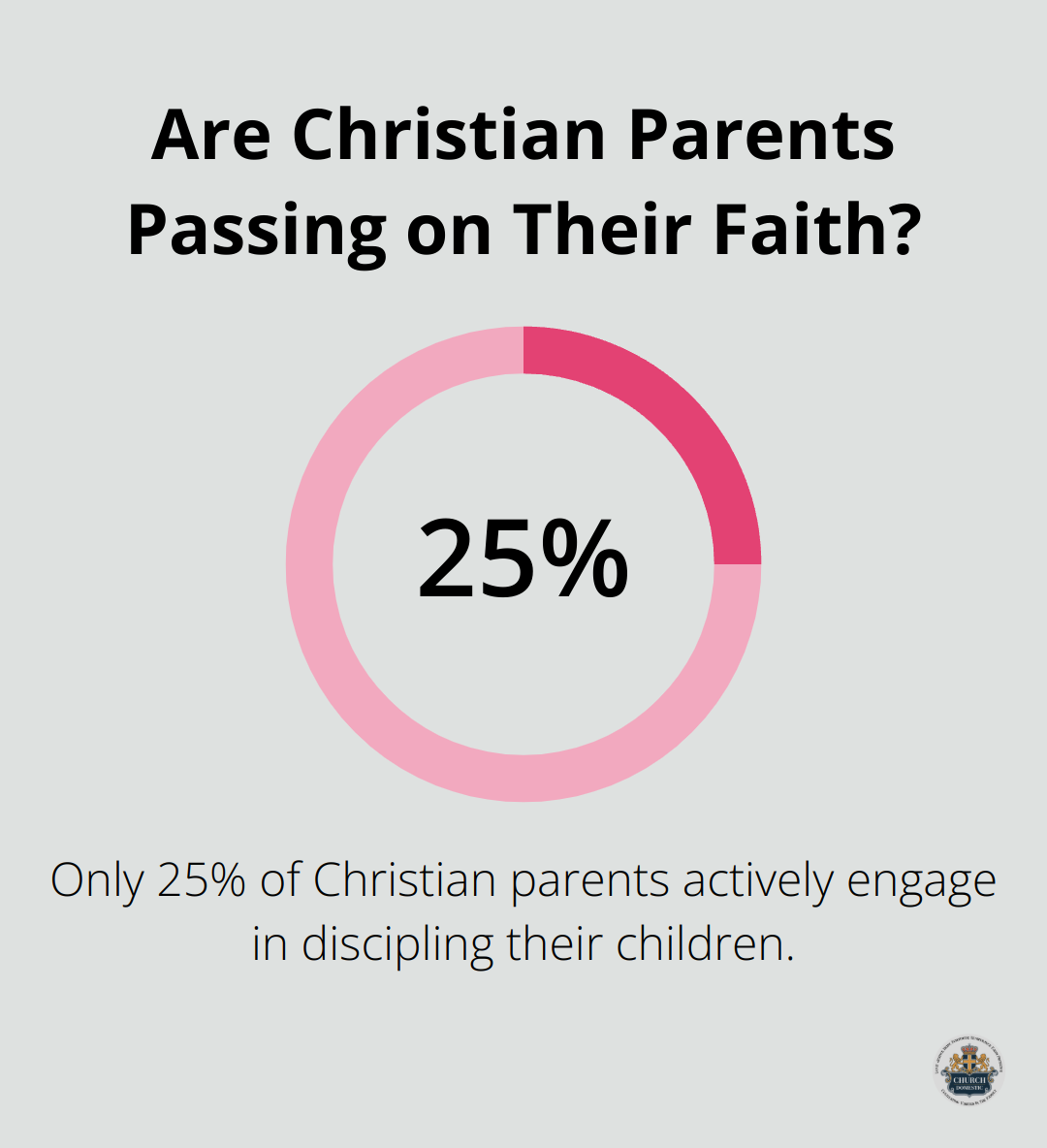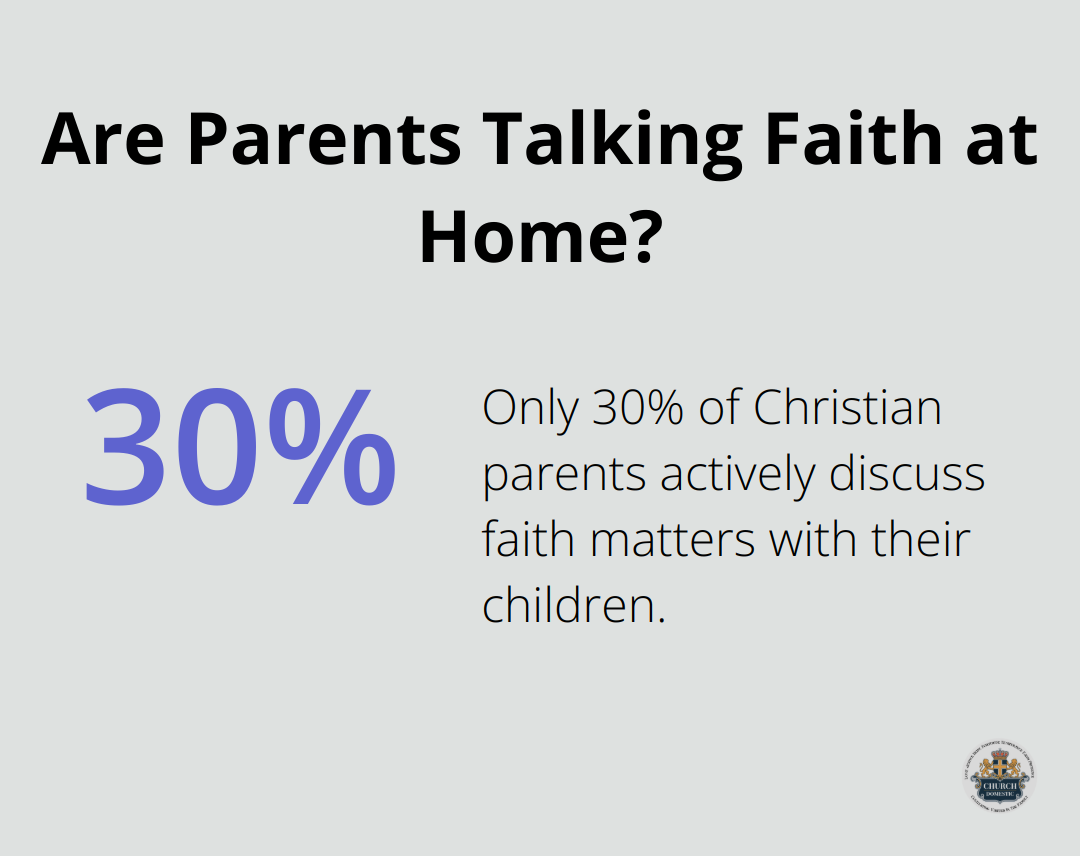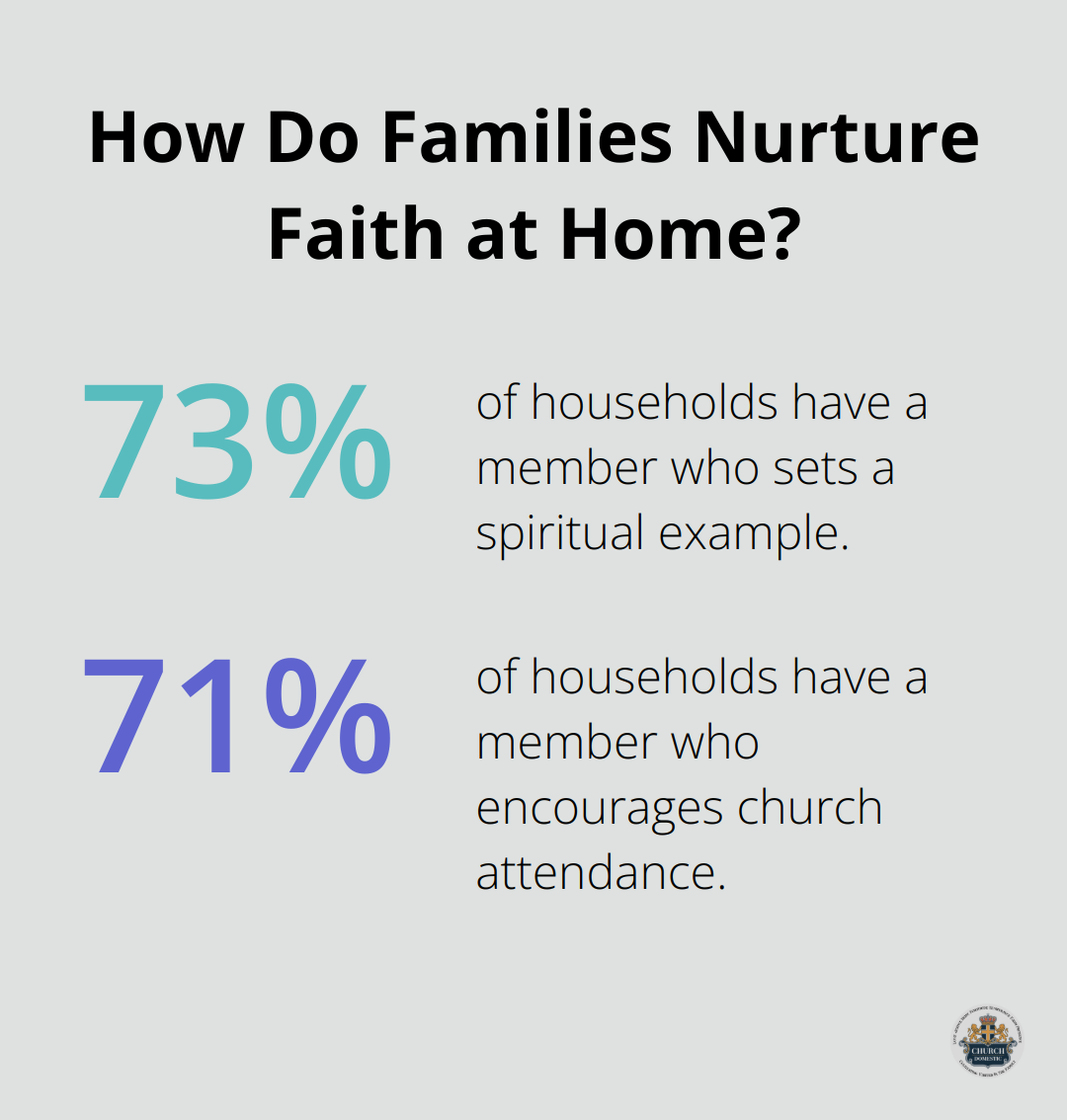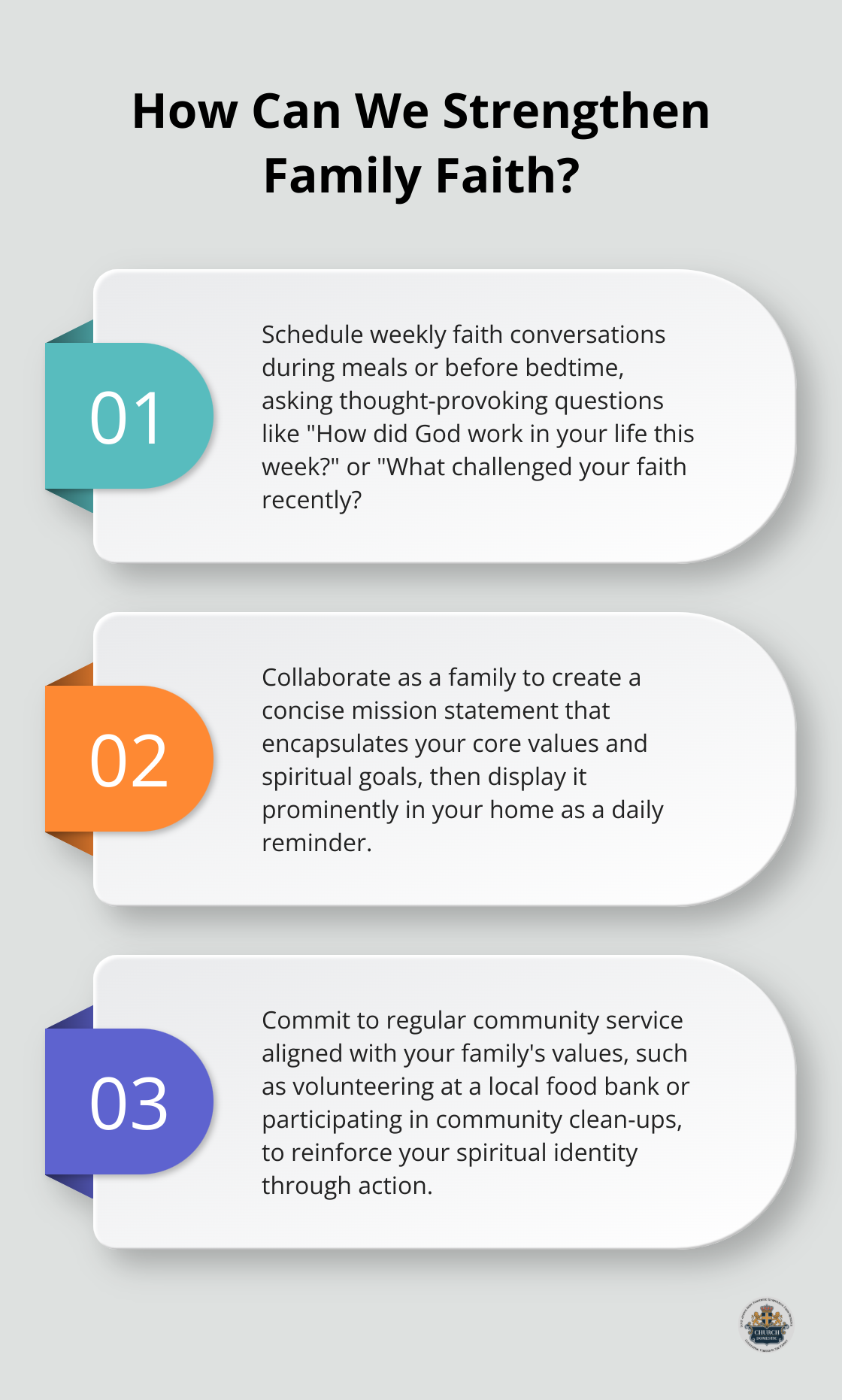At Church Domestic, we believe that family values are the cornerstone of a strong spiritual foundation. Your family’s spiritual DNA shapes your identity, guides your decisions, and influences your impact on the world around you.
Defining this unique spiritual blueprint is a powerful step towards intentional growth and unity within your household. In this post, we’ll explore why it matters and how you can start uncovering your family’s spiritual DNA today.
What Is Spiritual DNA?
The Essence of Family Faith Identity
Spiritual DNA represents the unique set of beliefs, values, and practices that define a family’s faith identity. This spiritual blueprint shapes family dynamics and individual growth. It extends beyond church attendance or mealtime prayers; it encompasses the deep-rooted convictions that guide decisions and actions.
Foundations of Family Identity
Your family’s spiritual DNA influences everything from conflict resolution to milestone celebrations. For instance, a family that prioritizes forgiveness might establish a practice of open discussions about hurt feelings and collaborative resolution (a key aspect of their spiritual identity). This approach molds how family members interact with each other and the world around them.
Intentional Development: A Necessity
The development of your family’s spiritual DNA requires conscious effort and consistent practice. A Barna Group study revealed that only 25% of Christian parents actively engage in discipling their children. This statistic underscores the need for purposeful spiritual development within families.
Crafting a Faith Legacy
When you define and nurture your family’s spiritual DNA, you impact more than your immediate household. You create a legacy that can influence generations. Research from the Fuller Youth Institute indicates that parents who discuss faith at home significantly impact their children’s long-term spiritual development.
Questions to Ponder
To begin defining your family’s spiritual DNA, reflect on these questions:
- What core beliefs about God, humanity, and purpose do we hold?
- How do we express our faith in daily life?
- Which spiritual practices hold the most meaning for us as a family?

As you answer these questions and actively live out your beliefs, you’ll start to shape a distinct spiritual identity for your family. This process continues as you grow and face new challenges together.
The next step in understanding your family’s spiritual DNA involves examining its key components. Let’s explore the essential elements that form the foundation of a family’s spiritual identity.
Building Blocks of Family Faith
Core Beliefs and Values
The foundation of your family’s spiritual DNA rests on fundamental beliefs and values that guide your actions. These might include concepts like love, forgiveness, honesty, or service. A Barna Group study revealed that only 30% of Christian parents actively discuss faith matters with their children. To strengthen your family’s spiritual core, make it a point to openly discuss and live out your beliefs daily.

For example, if compassion is a core value, you might establish a family tradition of volunteering at a local shelter once a month. This practice not only reinforces your beliefs but also provides tangible experiences that shape your children’s worldview.
Faith Practices and Traditions
Rituals and traditions play a vital role in reinforcing your family’s spiritual identity. These can range from daily prayer times to faith-based celebrations. Research suggests that parental religiosity and discipline styles can impact children’s moral development.
Consider creating a bedtime ritual that includes sharing gratitude, reading a spiritual text, or praying together. For older children, you might institute a weekly family discussion night where you explore challenging faith topics or current events through a spiritual lens.
Community Engagement and Service
Your family’s approach to community involvement and service expresses your spiritual DNA powerfully. The Corporation for National and Community Service reports that children who volunteer are twice as likely to volunteer as adults. When you engage in service together, you not only live out your faith but also instill lasting values in your children.
Start by identifying causes that align with your family’s values. If environmental stewardship matters to you, organize regular neighborhood clean-ups or participate in local conservation efforts. These experiences provide opportunities to discuss how your faith informs your actions and responsibility to the world around you.
Approach to Spiritual Growth
How your family pursues spiritual growth and learning forms a critical component of your spiritual DNA. This includes your attitude towards questioning, exploring different perspectives, and seeking knowledge. A study by the Fuller Youth Institute found that families who create a safe space for doubt and questions tend to have children with stronger, more resilient faith.
Encourage curiosity by establishing a family book club where you read and discuss spiritual texts together. For younger children, use everyday moments as teaching opportunities. For instance, use a nature walk to discuss the wonder of creation or a conflict at school to explore forgiveness and empathy.
As you cultivate these key components, you create a living, breathing faith that will shape your family for generations to come. This ongoing process evolves as your family grows and faces new challenges together. Now, let’s explore practical steps you can take to define and strengthen your family’s unique spiritual DNA.
How to Shape Your Family’s Spiritual Identity
Initiate Regular Family Discussions
Schedule weekly faith conversations. These can occur during meals, before bedtime, or on weekend mornings. Ask thought-provoking questions like, “How did God work in your life this week?” or “What challenged your faith recently?” A recent report looks at U.S. teens’ religious lives and the ways these reflect – or don’t reflect – the religious lives of their parents.
Craft a Family Mission Statement
Collaborate to create a concise statement that encapsulates your family’s core values and spiritual goals. This process sparks meaningful dialogues and aligns family priorities. Display your mission statement prominently in your home as a daily reminder of your shared spiritual purpose.
Implement Daily Faith Practices
Incorporate faith into your daily routines. Start with simple actions like saying grace before meals or dedicating time for morning devotionals. Consistency is key. A Barna study found that more than seven in 10 have a household member who sets a spiritual example (73%) or encourages church attendance (71%).
Serve Your Community Together
Select a cause that aligns with your family’s values and commit to regular service. Options include volunteering at a local food bank, participating in community clean-ups, or supporting a global mission.
Create Faith-Based Family Traditions
Develop unique traditions that reinforce your spiritual values. Consider an annual family retreat, special religious holiday celebrations, or meaningful rituals to mark faith milestones. These traditions become touchstones of your family’s spiritual identity and create lasting memories.

Shaping your family’s spiritual DNA requires patience, flexibility, and a willingness to adapt as your family evolves. These practical steps lay a foundation for a rich spiritual legacy that can impact generations to come.
Final Thoughts
Defining your family’s spiritual DNA shapes your household’s identity and legacy. Your unique spiritual blueprint guides decisions and actions, strengthens unity, and fosters individual growth and resilience in faith. Families with a clear spiritual identity navigate life’s challenges with greater purpose and cohesion.

Children raised in homes with strong spiritual foundations often carry these values into adulthood. They positively influence their own families and communities. A well-defined spiritual DNA provides a sense of belonging and continuity across generations (which is essential for maintaining family values).
We encourage you to start this process of spiritual DNA discovery today. At Church Domestic, we support families in their spiritual growth and provide resources for a thriving family life. Our blog offers insights on family values, business, and enjoying life to its fullest.